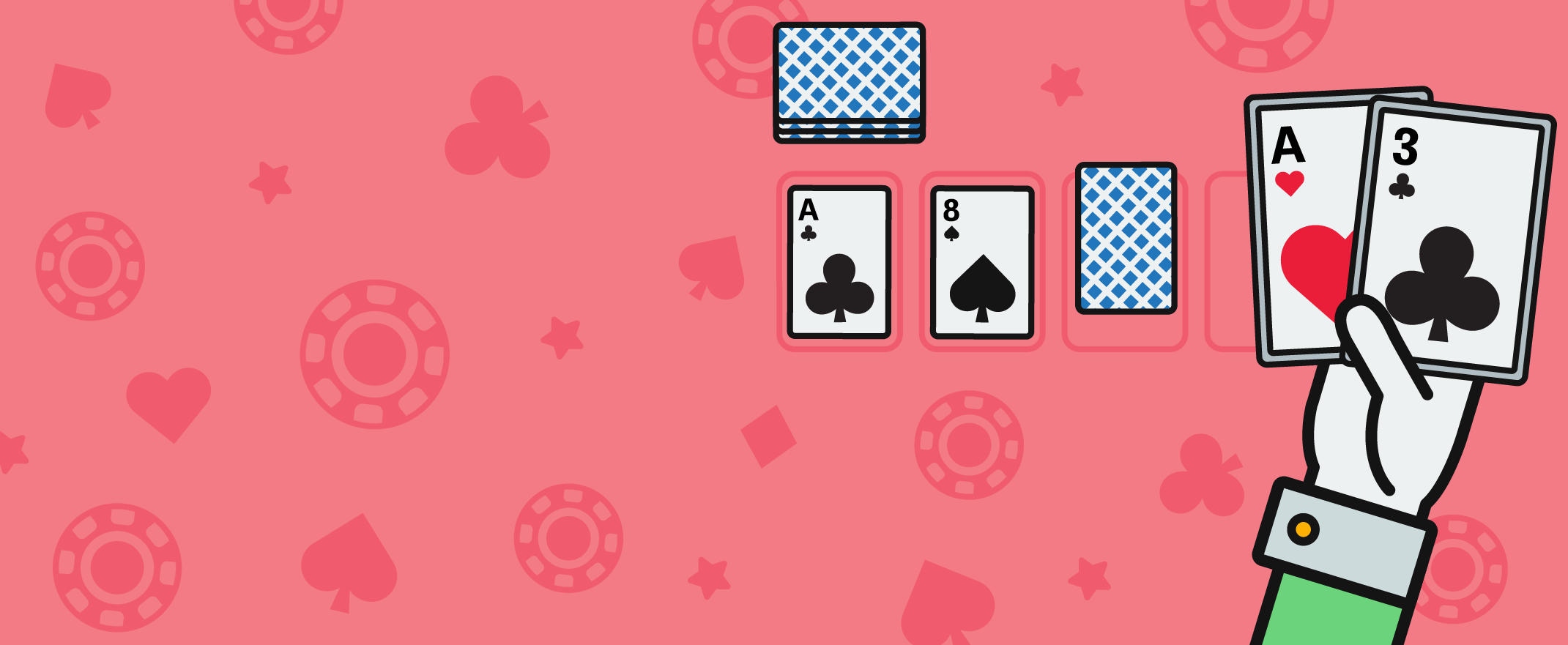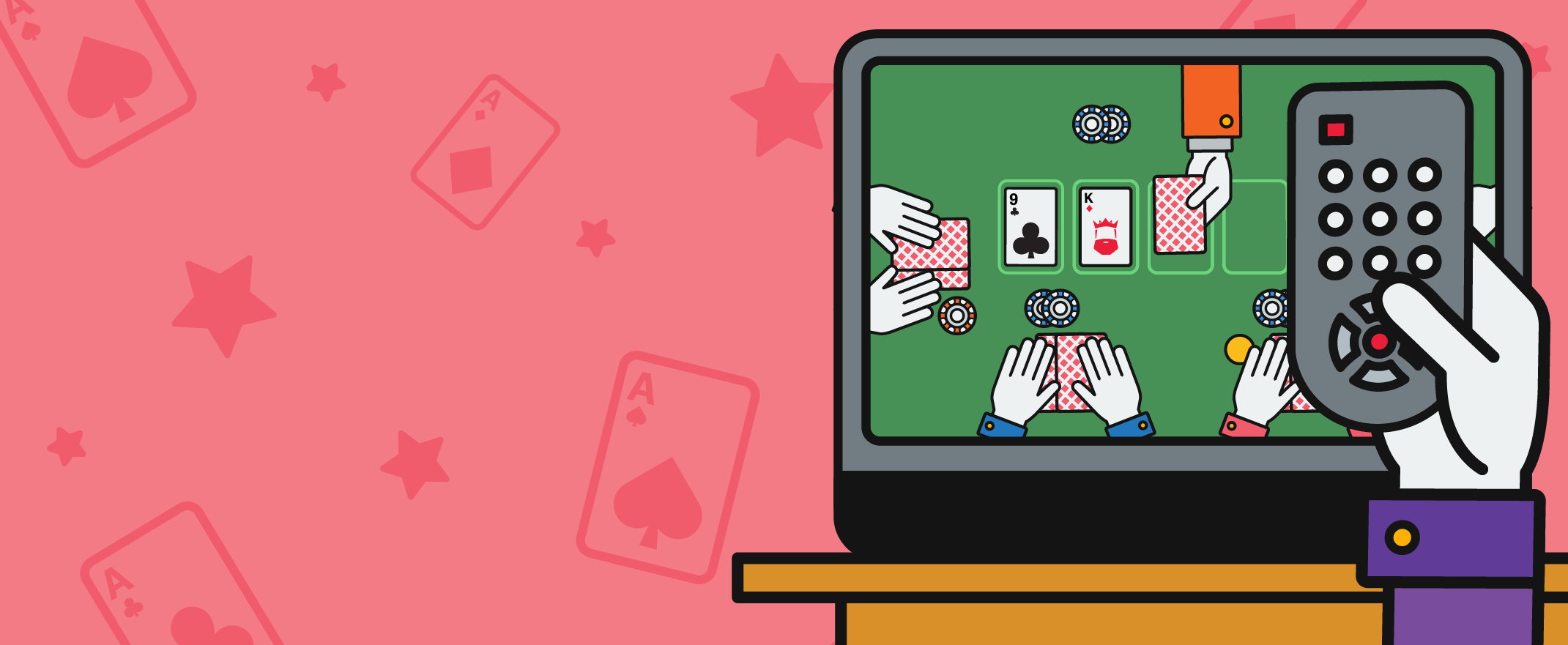Poker tip #1: Learn the rules
Mastering the rules of poker is crucial for winning the game, as it provides a solid foundation for developing effective strategies, predicting opponents’ moves, and making informed decisions. A thorough understanding of the game includes knowing the ranking of hands and betting structures, which are essential for recognizing winning combinations and determining the optimal times to bet, raise, or fold. This knowledge helps you avoid costly mistakes and capitalize on opportunities, ultimately enhancing your chances of success at the poker table.
Poker tip #2: Choose game type
Choosing the right game variation is crucial for learning how to win at poker since each version requires unique strategies, skill levels, and play styles. By focusing on one game type that aligns with your strengths and understanding, you can leverage your skills and experience more effectively. Additionally, some game types may have softer competition, providing better profit opportunities.

Poker tip #3: Know your hands
Winning at poker involves not only identifying strong versus weak hands but also understanding how to play them effectively. A key element of the game is the player’s position at the table. Players in early positions are at a disadvantage compared to those in late positions because they must act first, with less information about their opponents’ potential hands. As the game progresses and the dealer button moves, each player gets the opportunity to occupy more advantageous seats. It’s crucial for players to quickly assess the value of their hand and decide whether it’s worth playing. Additionally, understanding how your seating position affects the information available about opponents’ actions can significantly influence your betting strategy, allowing you to make more informed and strategic decisions.
Poker tip #4: Identify your weaknesses
Being unpredictable is equally important in poker, as predictability can make you an easy target for your opponents. If they can anticipate your actions, they can exploit your strategies and weaken your game. Maintaining a ‘poker face’—not just in your expressions but also in your betting patterns—is key to staying unpredictable. This means raising by the same amount, whether your hand is weak or strong, and playing different types of hands in a similar manner post-flop. By avoiding predictable betting behavior, you keep your opponents guessing, making it harder for them to read your strategy and giving you a better chance of winning. Additionally, being careful not to expose your cards before the showdown helps maintain this unpredictability, ensuring that you don’t give away unnecessary information that could be used against you.

Poker tip #5: Choose the table wisely
Carefully choosing the table is crucial in learning how to win at poker because its dynamics significantly impact your success. One key consideration is the house rake, a commission fee taken by the casino or card room. This rake can range from 2.5% to 10% of the pot, up to a specified maximum. The rake size directly affects your potential winnings, so seeking out tables with lower or no rake is beneficial to maximize your profits.
Additionally, assessing the other players at the table is important. Playing with familiar opponents can provide an advantage, as prior experience can help predict their behaviour and strategies.
Finally, always choose to play at reputable establishments. Avoiding illegal or unregulated games ensures a safer and more secure playing experience, free from the risks often portrayed in movies involving shady poker settings.

Poker tip #6: Watch your opponents and learn
Reading your opponents is half the battle in poker, so being observant is crucial if you hope to win. It might take some practice, but memorising what other players have done over the past rounds gives you the advantage.
Watch how aggressively each player is betting and keep an eye on their physical behaviour, too – you might be able to spot tells that indicate whether they are confident in their hand. At the showdown, please take note of players’ exposed cards and correlate that with their behaviour over the past rounds. This will help you get a mental picture of that player’s style and habits.
Poker tip #7: Keep it simple
You should strive to keep your mind focused and clear. Concentrate on the essentials such as the value of hands you should and shouldn’t play, and how to bet. At the beginner stage, you should focus on becoming confident in your play and in your understanding of the rules.
Be careful to avoid becoming emotional or tilted, as it will make you prone to mistakes. The key is to step away from the table when you feel like frustration, disappointment or anger might start to cloud your judgement.
Poker tip #7: Gamble responsibly
Responsible gambling is crucial in learning how to win at poker because it ensures you maintain control over your playing habits, both financially and emotionally. By setting limits on the time and money spent on poker, you avoid the pitfalls of chasing losses and making impulsive decisions, which can lead to significant financial and personal issues. It helps you focus on developing your skills and strategies rather than being driven by the compulsion to win back losses or play beyond your means. Additionally, maintaining a healthy balance between poker and other aspects of your life prevents burnout and keeps your mind sharp, enabling more rational and calculated decisions.
Poker tip #8: Know when to fold
Knowing when to fold is paramount in learning how to win at poker because it helps you minimize losses and manage your bankroll effectively. Additionally, folding wisely can help you read your opponents better. By observing their actions after you fold, you can gather valuable information about their playing styles and tendencies without risking your chips. This insight can be crucial for making informed decisions in future hands.
Poker tip #9: Play a balanced range
Playing a balanced range is important in learning how to win at poker because it makes your play less predictable to your opponents, which is crucial for maintaining an edge at the table. A balanced range involves playing a variety of hands, both strong and weak, in a way that your opponents can’t easily read or anticipate your moves. By doing so, you prevent them from exploiting your strategy, as they won’t be able to determine whether you’re bluffing or holding a strong hand.

Skills You Need to Win at Poker
To win at poker, you need a diverse set of skills, including:
- Mathematical Skills: Understanding odds, probabilities, and expected value to make informed decisions.
- Bluffing Techniques: Knowing when and how to bluff effectively to mislead opponents.
- Reading Opponents: Observing and interpreting opponents’ behaviours and betting patterns to gauge their hand strength.
- Emotional Control: Maintaining composure under pressure and avoiding tilt to make rational decisions.
- Bankroll Management: Effectively managing your funds to withstand the game’s variance.
- Adaptability: Adjust your strategies based on the table’s dynamics and your opponents’ playing styles.
- Position Awareness: Utilizing your position at the table to your advantage in making bets and plays.
How to Get Better at Poker
Improving poker involves a commitment to continuous learning and consistent practice. Here are some steps to help you get better:
- Study the basics: Learn the rules, hand rankings, and basic strategies to build a strong foundation.
- Analyze your hands: Use tracking software to review past hands, identify mistakes, and understand what you could have done differently.
- Engage in forums: Participate in poker forums and discussions to gain insights from more experienced players and to discuss strategies.
- Watch professionals: Observe professional poker games and analyze their strategies and decision-making processes.
- Play regularly: Practice by playing online or in-person to apply what you’ve learned and gain experience.
- Read poker books: Invest time in reading books by reputable authors to deepen your understanding of advanced strategies.
- Join a study group: Collaborate with other players to review hands, share knowledge, and learn from each other.
- Set goals: Establish clear, achievable goals for your poker development and track your progress over time.
By focusing on these areas, you can steadily improve your poker skills and increase your chances of success.
Conclusion
Winning at poker requires a blend of skill, strategy, and psychological insight. By mastering the rules, choosing the right game type, and understanding the importance of hand strength and position, you can build a solid foundation for success. Remember, while luck plays a role, a disciplined and strategic approach to the game will always set you apart.
FAQs
Find out what other players have often asked about winning a poker game.
Winning at online poker requires a combination of understanding the game’s rules and strategies, effectively managing your bankroll, and continually studying and adapting to opponents’ behaviors. Consistent practice and learning from both your wins and losses are key to improving your skills and increasing your chances of success.
There is no one easy answer for this, otherwise, the casinos would be out of business! Always be prepared to adjust your play to the situation. Mitigate your weaknesses and do not give anything away to your opponents. Understand the rules thoroughly and be prepared to work out the odds quickly.
Pro poker players share a number of characteristics. They are all highly disciplined and dedicated to improving their skills both while at the table and when researching, discussing and studying the game. Pros are also able to deal with adverse conditions such as consecutive losses, without letting them impact future play i.e. they know how to avoid tilting. Finally, professionals are experts at money management – that’s how they get to keep playing for longer without busting their budget.
There are different types of tournaments available but all of them start off with a large field of players and slowly whittle it down to just a handful of contenders, with one of those eventually taking home the pot. Tournaments present a challenge to players, who must face a changing cast of opponents over a longer period of time than the usual standard poker game. A poker player will need all their skills to win a poker tournament.
Casino Game Specialist
6+ Years of Experience

Statistics
35 Articles
Harper Gallagher is a respected specialist in online casino games, particularly craps, poker and casino table games. By staying abreast of emerging technologies and trends, she inspires others to pursue their own passions in the exciting world of online casino gaming.
Expert On:




